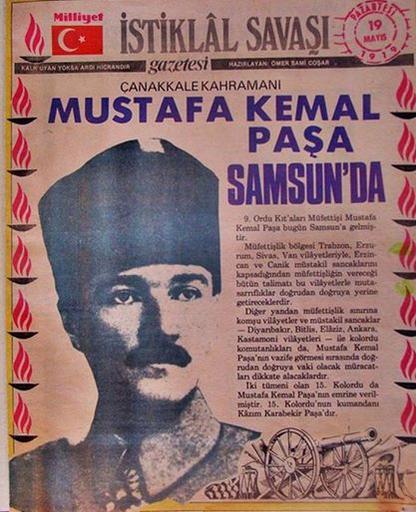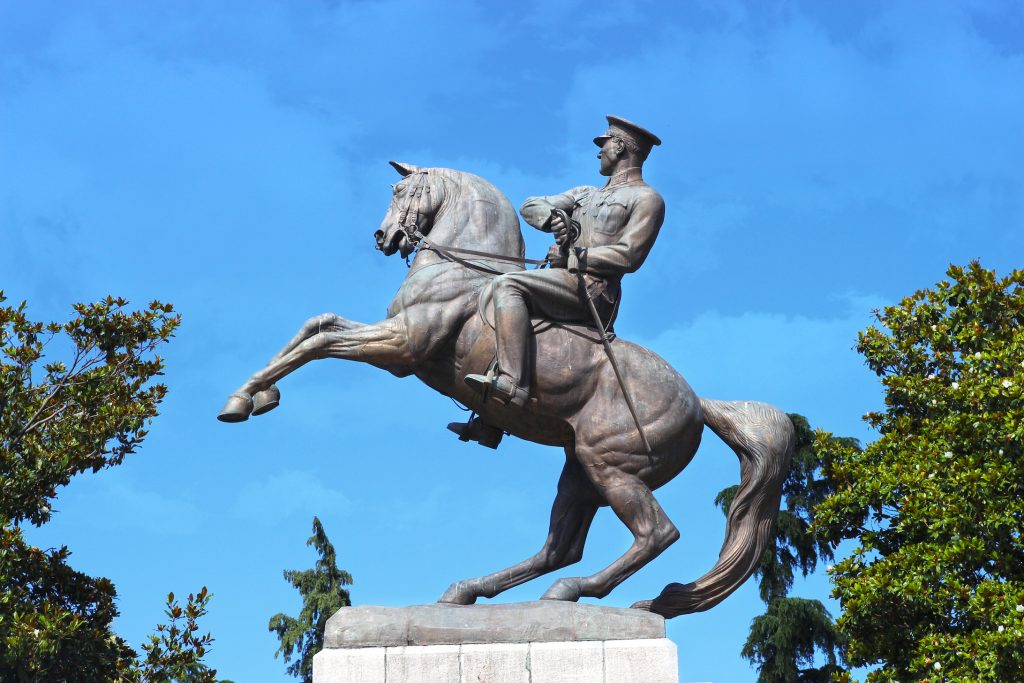Every 19 May, the people of Turkey commemorate Mustafa Kemal’s landing at Samsun, on the Black Sea, on May 19, 1919, which marked the start of the Turkish War of Independence.
The Turks emerged victorious from the four-year war, expelling numerous foreign powers which had invaded the crumbling Ottoman Empire, among them Britain, France, Italy, Greece, and Armenia.
Under the guidance of Kemal, renamed Atatürk (father of the Turks), the Turkish people declared a new, secular republic.
The date 19 May was gifted by Atatürk to the country’s young people, in whom he trusted to not only defend its borders, but also its values and secular heritage.
In 1936 it was decided this historic day should be celebrated annually as Youth and Sports Day. It became formalised by state decree in June 1938.
Forty-five years later, the Turkish authorities added ‘Atatürk’ to the title of this public holiday, to ensure the link between this great man, his epic landing at Samsun and Turkey’s young people remain firmly connected.
Each year since, young people in Turkey, North Cyprus and across the Turkish diaspora celebrate the day by singing the Turkish national anthem, reciting poems, holding parades and sporting events, and traditional cultural activities such as folk dances and plays to commemorate the national struggle.
Turkish Youth and Sports Day had its roots in the ‘Gymnastics Festival’ (İdman Bayramı), organised by the Teachers College for Boys in Kadıköy, Istanbul, in 1916.
The following year, event organisers adapted Swedish folk song Tre trallande jäntor, which in Turkish became Dağ Başını Duman Almışwith Turkish lyrics by Ali Ulvi Elöve. The song has since evolved into what is commonly known as Gençlik Marşı (Youth Anthem).
Mirliva Mustafa Kemal Pasha was assigned as the inspector of the Ninth Army Troops Inspectorate on April 30, 1919, tasked with overseeing the disbanding the Ottoman Army, as required by the Treaty of Sèvres.
Mustafa Kemal left Istanbul with his staff aboard steamer SS Bandırma for Samsun, but after landing he instead initiated the Turkish National Movement, in direct contravention of his orders.
The Turkish general moved his troops from Samsun on May 24, to the village of Karageçmiş in Havza district. According to Hamza Eroğlu, they sang the march Dağ Başını Duman Almış while marching from Samsun to Havza, and according to Şevket Süreyya Aydemir, they also sang this song after leaving Havza to go to Amasya.




